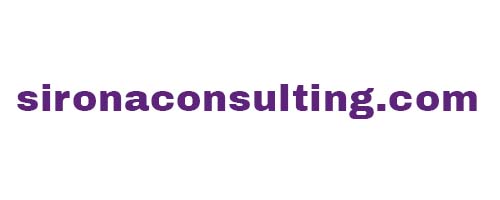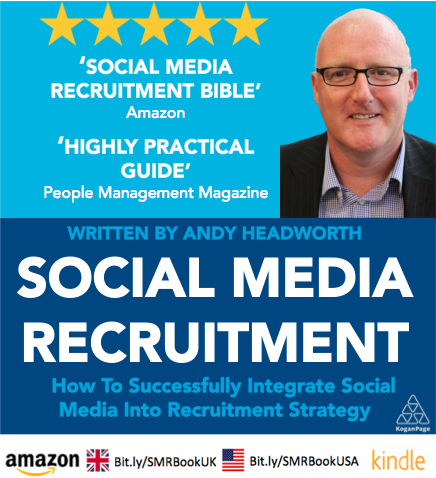How To Identify Your Target Candidate Audience - Recruitment Strategy Series (Part 1)
If I asked you if you knew your target candidate audience AND where it was located, could you give me straight answer? And would it be accurate?
Now, I am no mind reader, but I am guessing (from my experiences) your answer is no - unless of course, you are one of the excellent niche recruiters out there, who know everything there is to know about your target market.
So my next question is therefore, why the hell not?
If you are a recruitment agency offering companies your ‘market leading’ recruitment expertise and industry knowledge AND you then answer ‘no’ to the question above, then surely you are just kidding yourself and your clients? And yet, that is what companies pay you for, isn’t it? (And isn’t that what you tell people you do on your website?)
If you are an in-house recruitment function and you answer ‘no’, then you probably have the wrong people in your recruitment team, a poor candidate acquisition strategy AND you are going to be spending way too much with recruitment agencies, job boards and recruitment advertising agencies sometime soon (if you haven’t already blown your budget by now!)
So why are you still doing this? What possible reason can you give, as a recruiting professional, that justifies you not knowing where your target audience is?
Unfortunately, the answer I have had too many times from both parties (above) to the question of whether they know where their target audience is, ‘no’ mixed with a huge dose of apathy. Justification for this is quick in the coming - ‘our clients are happy enough with what we do fort them’ or ‘its not my problem, it isn’t my budget, so i will just use agencies - it can be their problem’.
Sound familiar does it? (Please tell me it isn’t!)
So how do you find out where your candidate audience really is, then? Unsurprisingly, it takes a little work, but it is something you absolutely need to do to, whichever recruiter you are.
Here are ten ways to identify where your target candidate audience is:
- List all the common job titles you hire / recruit for at your company, in a spreadsheet. Then add the synonyms of these job titles, that potential candidates will use for them (put yourself into the mind of a candidate for this.) This is REALLY important as many companies use weird and wonderful job titles that are unique to them and are not ones commonly used by other companies or job seekers. A great example is from our industry: there are many Talent Acquisition Manager titles around (but they are just a fancy name for a recruiter). However, that isn’t the word(s) a non-industry person would use to find a recruiter - they would search for keywords like recruiter or recruitment or recruitment consultant.
- List all the primary keywords associated with these same job titles, and as above, add the synonyms with them to your spreadsheet. These are the keywords that you would expect to see in profiles, bio’s, online resumes etc.
- Build some boolean string in readiness for the next stages. Staying with a recruitment example, it could look like: (recruiter OR “recruitment consultant” OR recruitment specialist” OR “recruitment resourcer”); or keywords, LinkedIn AND sourcing AND “social media”
You may have already build your boolean strings and synonym libraries and added these to a central drive for sharing (if you haven’t you should do this!). If this is a problem for you then go over to Social Talent’s Boolean Generator for an easy way to create your strings. - Ask your current employees (if employer) or candidates / contact / network (if agency) where they go to speak and chat to their peer groups - offline networking? Online groups? Which social networks?
Human nature helps this greatly as we all tend to engage with like minded people. So, for example, your project managers or developers will naturally be in contact with other project managers and developers - sharing problems, solving problems or just chatting. You need to find out where these conversations are happening. Now it might be a simple answer like LinkedIn Groups, Google Plus Communities or Facebook Groups, but the likelihood is that it will be in places that hadn’t even occurred to you. Find them and you have found a target audience. Ask ALL your employees and just don’t take no for an answer - you absolutely need to know the answer to this.[I deliberately haven’t mentioned identifying target companies where your potential candidates could be, as that is so damn obvious. If you don’t know those then you really are in the wrong job!] - Use LinkedIn to help identify groups of your target audience. On LinkedIn the average number of groups per member is 7 - therefore check out the profiles of a number of good potential examples of your targets, scroll to the bottom of their profiles and see what groups they are in. They may well surprise you! Obviously you then have a great starting point to find other similar people. And of course when you identify the group, give it some x-ray search love and search the group:
site:linkedin.com (inurl:dir OR inurl:pub) “insert exact group name” “keyword 1” “keyword 2” - Use social networks like Facebook (using the GraphSearch), Twitter, Google Plus, Pinterest, Instagram, Quora, Github, StackOverflow etc to further search for your target audiences. Use the boolean strings you have created earlier either on their own in the searches or via x-ray searches of these networks.
- There are sites like MeetUp and Eventbrite that allow you to find networking events. Finding your target audience can also involve looking for networking groups, and doing the ‘old-fashioned’ thing of actually ‘pressing some flesh’ and talking to people. If you haven’t done it for a while, it works!
- If you want to do some advertising as aprt of your attraction strategy, which job boards are the ones to advertise on? Where are the most suitable candidates? Is it the generic big boys - Monster, TotalJobs, Reed, CVLibrary or Jobsite? Is your advert better placed on a niche board with a smaller but targeted audience? If you haven’t done stages 1-5 above, then you are simply guessing, and therefore potentially wasting your money. Don’t just listen to what the job boards tell you - most of their sales people will tell you what you want to hear to get the sale. Do your homework. The right job board will make a huge difference.
- As a corporate who needs to use recruitment agencies for the hard to fill roles, which agencies do you use? Who are the ones that specialise in your marketplace? Have you even bothered to take the time to check? Here is a simple checklist to ensure a recruitment agency fins the candidates you want:
- Does their website tell you they recruit these skills?
- Look at the LinkedIn profiles of their recruiters - do their profiles highlight the fact they recruit these skills or types of roles?
- Look at the jobs they are posting (on their own website and the job boards) - are they the types of skills you are looking for?
- Check if they run LinkedIn Groups or other Communities based on the specialist skills you require.
- If you continue you do this…………..
……. you are in the wrong industry. Recruiters - both in-house AND agency side - HAVE TO ADD VALUE TO their clients. If you don’t want to do this, then go find alternative employment, before the decision is made for you!
It is important to remember that every target audience is made up of different segments, each with their own objectives of being in their groups. That’s what makes this task challenging and fun, all at the same time!
Remember at this stage you are not sourcing yet, you are at the identification of where your target audience of candidates are. Now you are going to give yourselves the chance to recruit the right candidates for your company / clients.
You simply HAVE TO KNOW where your target candidates are - hopefully this post will give you a reminder of where yours are. If you are still not sure, you know where I am 🙂
Make sure you subscribe to this blog for further posts in my Recruitment Strategy Series
I work with recruitment agencies and corporates to help them understand and leverage the different social media networks to improve their recruitment strategy, recruitment process, candidate attraction, employer branding and content marketing strategy. If you require guidance, advice or social recruiting training, get in touch today.
If you like reading this blog, then click on the orange RSS icon here and get the latest Sirona Says posts delivered to your RSS reader or your inbox the moment they come out.




Pingback: UK Recruiter » How to Become a Niche Recruiting Ninja()
Pingback: Sirona » 7 Ways Social Media Can Help Build Your Talent Pipeline()